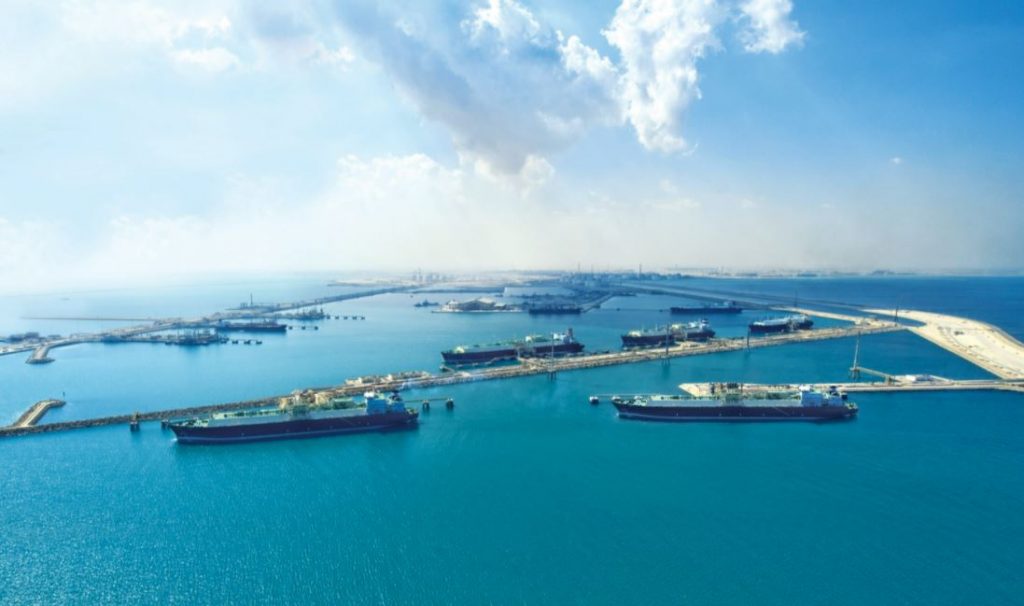State-owned LNG giant QatarEnergy said it would work with Germany on long-term LNG supplies as the country looks to slash its reliance on Russian gas.
German Minister for Economic Affairs and Climate Action, Robert Habeck, visited Doha on Sunday where he agreed a long-term energy partnership with Qatar.
Habeck was accompanied by executives from German companies, including RWE.
Several media reported that Qatar and Germany have signed a long-term LNG supply agreement.
However, QatarEnergy and German firms are yet to negotiate the terms of the agreement.
Fast-track solution
QatarEnergy said in a statement on Sunday it had been discussing the supply of Qatari LNG to Germany for a number of years with German companies.
“However, until recently, such discussions did not materialize into definitive agreements due to the lack of clarity on the long-term role of gas in Germany’s energy mix and the requisite LNG import infrastructure,” the firm said.
Qatar’s energy minister and chief executive of QatarEnergy, Saad Sherida Al-Kaabi, met with Habeck in Doha on Sunday.
“The German side confirmed that the German government has taken swift and concrete actions to fast-track the development of two LNG receiving terminals in Germany as a matter of priority to allow for the long term import of LNG to Germany and that such scheme has the full support of the German government,” the statement said.
Based on the foregoing, the two sides agreed that their respective commercial entities would re-engage and progress discussions on long-term LNG supplies from Qatar to Germany, QatarEnergy said.
QatarEnergy announced a final investment decision on its $28.75 billion North Field East project in February last year.
Under the project, QatarEnergy will build four mega trains with a capacity of 8 million tonnes per year in the Ras Laffan complex.
This first phase of the expansion project will increase Qatar’s LNG production capacity from 77 to 110 mtpa while the second phase will further boost capacity to total 126 mtpa.
QatarEnergy expects first LNG from the expansion projects in 2025.
The company’s unit Qatargas already operates in total fourteen LNG trains at Ras Laffan.
Several LNG import terminals on the table
German Chancellor Olaf Scholz recently said that Germany had decided to back the construction of two LNG import terminals as part of efforts to expand options for gas imports.
Germany currently has no large LNG import terminals
The two facilities include the Brunsbuettel LNG terminal and Uniper’s LNG import and hydrogen facility in Wilhelmshaven.
After that, Uniper, a unit of Finland’s Fortum, confirmed it has revived plans to build an LNG import terminal in Wilhelmshaven.
Also, Dutch gas grid operator Gasunie joined forces with the German government and RWE to build the Brunsbuettel LNG import plant with a capacity of 8 billion cbm per year.
RWE, which has a 10 percent stake in the German LNG Terminal, also plans to build an ammonia import facility near this plant.
Besides these projects, Germany’s Hanseatic Energy Hub is also working on the Stade LNG import terminal near Hamburg while Belgium-based Tree Energy Solutions (TES) is looking to import both LNG and hydrogen via a planned hub in the German port of Wilhelmshaven.

